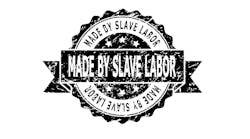COMMENTARY & ANALYSIS
The Biden administration has revived an effort that began during the Obama era to eliminate independent contractor status from most professions, including truck driving, to make it legally possible for those people to be organized by labor unions.
At the beginning of January 2022, the Department of Labor (DOL) and National Labor Relations Board (NLRB) signed a memorandum of understanding (MOU) to share information, collaborate and coordinate on investigations of potential violations of federal labor and employment laws in regard to worker misclassification, dealing with both independent contractor status and joint-employment relationships.
This could turn out to be an ominous development for employers, according to attorneys William E. Collins Jr. and Maggie (Hanrahan) Santen of the Ogletree Deakins law firm. “Companies that use independent contractors or alternative workplace arrangements may want to consider monitoring these developments and auditing their own worker classifications to minimize the ever-growing risks in this area, to the extent possible,” they say.
The move should not really come as a surprise, given this administration’s markedly pro-labor ideological bent, and the direction taken by both agencies during Biden’s first year. Secretary of Labor Marty Walsh came to his job from being mayor of Boston and before that had served in a variety of union executive posts. NLRB General Counsel Jennifer Abruzzo, who appears to be setting policy direction for the board, similarly comes from a union background.
Walsh’s DOL, through its sub-agency the Occupational Safety and Health Administration (OSHA), created two COVID-19 Emergency Temporary Standards (ETS), under presidential orders One of these gained notoriety by requiring that employers ensure their workers were vaccinated and was recently struck down by the Supreme Court.
Since her first day on the job, Abruzzo has been hard at work helping her former union employers, attempting to overturn board policies that were adopted during the Trump administration. She is perhaps best known at this point for ruling on her own that college athletes are professionals who are entitled to the same labor law protections as other paid employees.
How the independent contractor and joint employer definitions are written and interpreted will have profound consequences for the economy, employers and the individuals who will be directly impacted. A radical contractor law adopted in California at the behest of unions has shown this to be the case.
That law’s most salient provision says an independent contractor status can only exist if it meets a three-part “ABC” standard. The sticking point is the “B” section, which changed the previous definition by declaring that someone cannot be considered a contractor if they are in the same line of business as the employer. As a result, a plumber doing work for a retail store can be considered a contractor, while a truck driver working for a trucking company cannot be.
Other states have worked on creating their own “ABC” laws similar to California’s, with New Jersey and Massachusetts so far being the only ones to go ahead with theirs. At the federal level, an almost exact same provision is included in the massive labor reform legislation called the Protecting the Right to Organize (PRO) Act, which is backed by President Biden and most congressional democrats, but which so far has yet to pass and at this point is not expected to.
Are You Being Exploited?
These new laws reflect a belief shared by union advocates that the contractor relationship is inherently exploitative. During the Obama administration, a college professor named David Weill who was named to head DOL’s Wage and Hour Division famously declared that there are no such things as independent contractors, only misclassified employees—a trope that was happily repeated by Hillary Clinton during her 2016 presidential campaign.
Biden has nominated Weil to serve another term as head of the division. However, his nomination has stalled in the Senate amid concerns that he would attempt to adopt the California “ABC” as federal policy even in the absence of legislation backing him up.
Protestations by Weil and his union friends that contractors are unwilling and exploited dupes flies in the face of reality. DOL statistics show that 500,000 workers became independent contractors after the COVID-19 pandemic began last year and the total number of those who are self-employed now totals 9.44 million.
Some believe the choice to become independent contractors, freelancers and gig workers is what is behind the “Great Resignation” because people are fleeing regular jobs to work independently. It’s been estimated that in the U.S. as many as 59 million people have chosen to engage in some form of independent contracting.
But there is another reason that unions hate independent contractor status—in most cases they can’t legally organize them. Under the law, contractors are considered to be small businesses, and as such they cannot join together to set prices (wages) through collective bargaining without finding themselves in violation of antitrust laws.
Last year, DOL withdrew a final rule that had been adopted by the Trump Labor Department that had been designed to protect independent contractor status. Secretary Walsh said of the decision to withdraw the rule that it “will help preserve essential worker rights and stop the erosion of worker protections.”
Union organizing also is the motivating force behind changing joint employer standards. At present, unions cannot organize franchise operations like some convenience stores and fast food chains. Thus, the McDonald’s company is not considered the employer of those who work at your local McDonald’s franchise restaurant. And, in fact, McDonald’s is one of the companies that unions seek to organize by having them defined as joint employers by federal authorities.
In December, the board announced that it intends to address the joint employer standard this year with the intention of reversing Trump era policy. In order to do so, legal observers believe the board will need to initiate a new formal rulemaking, complete with public notice and comment periods, staff studies and due deliberation, which could take up to a year to complete.
As Obama famously said, elections have consequences, and unless you are in favor of these radical changes, both independent contractors and the businesses that rely on their services need to step up to the plate and get involved in the political process, either individually or through those organizations that represent your interests in the halls of power.




